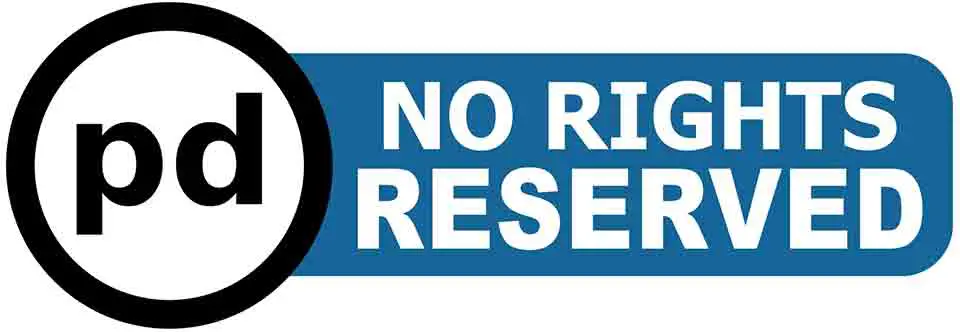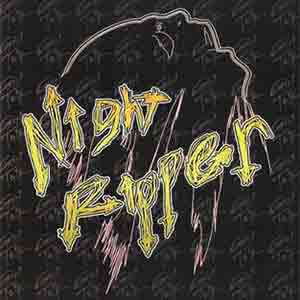What Happes if I Upload a Remix Without the Artist Permission

Remixes are a not bad way to get your proper noun out there or create tracks for your own DJ sets. However, at that place seems to be some confusion around the legalities of remixing tracks. So how does it piece of work? Practice yous need permission to remix a song?
The brusque answer is officially yes, you will demand permission from the record label to remix a runway. Doing and then does have benefits, in one case you get the get-ahead you volition exist provided with the stems of the rails. These are the cleaved downwardly parts of the rail i.eastward. vocals, drums and melodies will all be provided separately to you. This gives you a lot more than flexibility and choice when you are creating your remix.
When you hear officially released remixes, such as those released on the b-side of singles, this is the process that volition have been followed. On occasion labels or artists will actively seek out a producer in order for them to do a remix of their track.
The Irony of Official & Unofficial Remixes

One instance of in-demand producers for remixes would exist Soulwax for example. Who, ironically, made a lot of unofficial remixes and mashups which is how they became prominent in the electronic world in the first place.
Another benefit, and perhaps the main one, of having official permission is that your remix will be sellable. This means you can upload it and share information technology on your ain accounts and fifty-fifty charge for it without fear of it beingness taken downwards for copyright infringement.
When it comes to how much coin you make from a remix, this will exist a bargain that is made directly with the tape label. It volition exist negotiated and agreed before you are e'er sent the musical files to begin with.
Big-name DJs such as Deadmau5 (see his amazing gear here), would be paid very well for remixes. He would also just work on tracks he genuinely liked of class.
Unofficial Remixes
In reality, what happens a lot of the time is that people make unofficial remixes. This has its limitations of course. For example, you lot can only utilise the runway as it has been released.
Therefore if you lot wanted to separate out the bassline, for instance, then you can only really do this if there is a office already in the runway where it is playing solo.
This means you are somewhat limited to what yous can do with the tracks.
The Difference Between Re-edits and Remixes
It is worth noting that remixing is slightly different from reediting. Which is a fairly common do in the DJ earth.
A re-edit is when someone either reorders part of a track or takes their favorite parts and loops them so that they play longer. This makes them more than DJ friendly.
An splendid example of this would be Skream's remix of LaRue's in for the kill. Although it is a dubstep rail, it switches to a drum and bass rhythm for its finale.
High-Dissimilarity then took this remix and re-edited it to make the last department much longer then he could play it in his drum & bass sets.
So in this instance, this is a re-edit. In this case, it simply and so happens to be a re-edit of a remix. Basically it'due south the inception of the music world.
The Risks of Unofficial Remixes
A downside of unofficial remixes is that when putting them online yous chance it existence taken down for copyright infringement. Facebook and YouTubes have sophisticated algorithms to identify them automatically.
You are also unable to charge for unofficial remixes.
If you exercise try charging then you are likely to exist sued and take to hand over all profits (plus damages) to the original artist.
This is why y'all volition often find unofficial remixes being given abroad for costless.
Some artists actually encourage this every bit information technology gets their proper name out in that location more. Others are directly opposed to the idea and will actively take unofficial remixes down.
The (potential) Benefits of Unofficial Remixes

As mentioned to a higher place, remixes can exist a great way to go established and get your name out at that place. UK DJ Kissy Sellout, for example, did exactly this. Producing remixes past the bucketload.
It is reported that he produced upward to a thousand unofficial remixes that he would use in his DJ sets. As he became more prominent he would also play them on the radio under the name of 'Kissies Klub Versions'
Creating remixes in this manner is fairly common in the DJ industry.
The reason being, if yous produce unofficial remixes for your own utilize then information technology means people at your DJ sets are hearing something familiar yet entirely unique.
So, unless the DJ chooses to share the remix anywhere, they will have exclusive use of information technology. This goes hand-in-hand as to why Kissy Sellout became so well-known for his DJ sets.
Not simply is he blithe behind the decks but he likewise had a wealth of remixes to play.
What If You lot've Produced a Remix?
Some other common way of remixes really getting released is for someone to brand them unofficially so actually approach the label for release.
Often this will be refused. Although if information technology does go on farther in that location are probable to exist two courses of action.
- Either the label will release them itself and requite you a fixed fee for the piece of work you lot have done
- Or they will agree to a licensing bargain.
In the latter case, you are gratuitous to distribute and sell the runway yourself however, you'll have to pay a stock-still percentage to them for every single purchase.
Either of these is more probable if yous are already an established producer.
Will a Label Try & Sue Y'all But for Making a Remix?
In general, no. However, it depends on how you have distributed your remix.
If you take created a remix so contacted the label directly for permission, even if they say no then by and large that will be the stop of it.
Likewise, if you are but using the remix in your ain DJ sets then you are unlikely to receive a finish and desist letter of the alphabet.
However if y'all are freely distributing your remix or selling it then, depending on a variety of factors, a label may contact you to take the track down.
So there is an inherent risk in using copyrighted music so y'all should always err on the side of caution.
Love DJ gear?
Then exercise we, check out our favorites…
Do You Need Permission to Remix a Song If Information technology's Public Domain?

There are some tracks that are old enough to be considered public domain, in which example these may be suitable for remixing.
However, you would need to bank check individual copyright and licensing of that track. It is possible if a rail is pop plenty, then the label concerned will take updated and protected information technology virtually indefinitely.
While it used to exist the instance that music would autumn into the public domain afterward a set amount of fourth dimension, seemingly these days information technology applies mostly to canvass music.
Recorded music even so retains rights due to the additional piece of work that has gone into it.
Playing a Remix in a Club

The operation and requirements of performance royalties are the aforementioned for both remixes and original tracks. Largely, however, when performing in a guild, the requirement of paying performance royalties will autumn to the order itself. If they're running properly, they should exist up to date with their licensing and payments.
This is a chip of a grey area of course. Because, if you are existence paid and your set up is made up entirely of unofficial remixes then, in an indirect manner, you are profiting from those remixes.
That said unless in that location is a record executive from that specific label it is unlikely that you'll have whatever repercussions from this.
Although as you become well-known and your mixes are shared then this could exist an outcome to be wary of.
Licensing
There are licenses available to purchase for some songs so it'due south always worth checking if the song you want to remix is bachelor.
There are a couple of unlike types of license that are worth investigating:
Mechanical Licenses
Mechanical licenses allow y'all to release things like comprehend songs. So you lot can encompass a rail with your own instruments or vocals and, as long as you take a mechanical license, release it as a for-profit song.
This applies to the United states only at the fourth dimension of writing, in the UK you don't need a mechanical license to do this.
Master License
The other pick is a master use license and this is what is required for remixes. The reason being that you are using elements of the original vocal and rearranging it.
Where Does Sampling Fit Into This?
Sampling is creating an entirely new track but by using sections of existing tracks. This is very well-known in Hip-Hop and is actually how Hip-Hop was started in the first place.
And information technology has really been a bone of contention ever since.
One point is the debate over how many seconds of a track counts equally a 'sample' and should be considered as 'fair use', and how much constitutes original work and should be copyrighted and billable.
RiP!: A Remix Manifesto

The DJ/producer Girl Talk features in an in-depth documentary nearly sampling that is well worth a watch.
In it they discuss his 'Night Ripper' album, which is made entirely from samples, some are short as one drum hit. The anthology reportedly has upwardly to 300 copyright infringements and could take landed him a penalisation totaling $45 million.
Ultimately he was never sued equally he never released his album for profits. Had he licensed everything officially it would have toll him far beyond a million dollars, making the album released completely infeasible. (You lot can see a list of all tracks used at the bottom of the page).
In the example of sampling, it largely depends on how active the label is. Strictly speaking, you need a master and mechanical license enabled in order to be able to sell your song via worldwide distribution.
Sampling Gone Wrong
A very famous example of sampling gone wrong would be the Verve'south 'Bitter Sweet Symphony' which sampled an orchestral cover of the Rolling Stones' "The Last Time".
By far the Verve's biggest hit they didn't brand a penny due to a copyright dispute. While they had signed an agreement with the orchestral arranger, the Rolling Stones' managing director refused to grant a license for the track (The Last Time) that was covered in the start place.
That said in 2019 The Rolling Stones released their copyright to the Verve, meaning that any sales from now on become directly to the Verve.
In Decision Do Y'all Need Permission to Remix a Song?
If you intend to release the tracks commercially so, in short, yes you do need permission.
And even if you are to brand remixes for use only within your own DJ sets then y'all will likely still be covered by restrictions. That said it has been common to not seek these and plenty DJs have done unofficial remixes without repercussions.
Equally mentioned Soulwax, Girl Talk and Kissy Sell Out all did this and then it is unlikely that yous would either. Equally long as you do not release the track for download by itself. While as role of a mixed compilation yous should be okay.
However, if you're going to follow this method be sure to use the track exclusively for your ain rights and practise non share it with anyone. Fifty-fifty if yous requite it to a friend and they upload it then ultimately yous volition be the one liable.
Therefore it's best to keep your remixes completely to yourself and use them exclusively in your sets.
Note: The advice given in this mail is general and should not be considered legal advice. Always check the rights restrictions and copyright legalities of tracks in your individual land and state at all times.

Sources
- Soulwax / 2manyDJs epitome past Bertrand / 2manyDJs, licensed under CC 2.0
Source: https://www.djproducertech.com/do-you-need-permission-to-remix-a-song/
0 Response to "What Happes if I Upload a Remix Without the Artist Permission"
Post a Comment